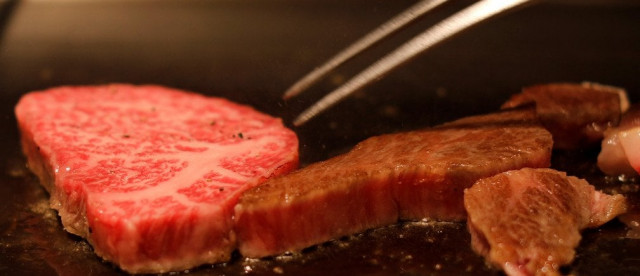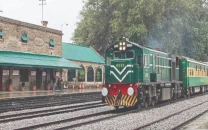Pakistan's meat processing industry thrives with retail sector expansion
Entry of retail giants into Pakistan has increased demand for quality meat

PHOTO: REUTERS
Hafiz Muhammad Kashif, owner of a medium-range meat processing unit, has found new business horizons in the backdrop of the growing retail sector of the country.
His unit, Muzammil Foods Private Limited, located in Raiwand city near Lahore, is equipped with modern facilities to process red and white meat. He has all the required certifications to work and supply fresh meat to some international and domestic retail chains operating in the country.
Though dealing with livestock and selling meat is Kashif’s family business, his forefathers ran it in the traditional way like operating a butcher shop. Kashif himself had earlier opted to follow the traditional method of selling meat, primarily beef and mutton, as he was not familiar with modern ways of doing business in this category.
The entry of multinational retail giants into Pakistan has sparked demand for semi-processed quality meat, hence their managements are usually tasked with searching for meat suppliers who can invest in modern processing facilities and ensure continued supply as per global standards.
“I started supplying beef to Dubai-based retailer Carrefour in 2009,” Kashif told The Express Tribune. “It convinced me to continue working for it therefore I decided to avail the opportunity and build my business on modern lines.”
He shared that proper training, spanning about four months, was given to him in which he learnt new ways of sourcing live animals, traceability, slaughtering as per Halal procedures, hygiene checklist, product specifications and warehouse management.
Pakistan is blessed with a rich livestock population and for many people in rural areas it is the primary source of livelihood. However, when it comes to supplying meat, the country lags behind and remains unable to gain a modest share in the global Halal food market.
According to statistics, Pakistan has a meagre share of 0.25% in the $3-trillion international Halal food market.
Locally, a few companies are supplying processed red and white meat through their retail outlets but their share remains small.
Kashif lamented that there was not a single government agency in the country which offered training and motivated traditional butchers to enter the modern retail sector.
“I was lucky to become a meat supplier to a well-known retailer,” he said. “Once I streamlined my entire network, I got new opportunities to expand my business.”
After Kashif was contacted, he immediately started supplying red meat to the foreign retailer, however, it took him almost six years before he started supplying white meat.
During this time, he worked on enhancing his supply line and inked an agreement with three local retailers.
“Currently, my revenues from all retailers are touching approximately Rs80 million per month,” he revealed. “My business has expanded 400% since 2009.”
Besides supplying fresh meat to retailers, Kashif established his own retail outlet in Raiwand, however, the recent anti-encroachment drive proved detrimental and he had to close it down.
“I managed to secure ample land during the tenure of previous governments and started my first retail shop. It was performing good but the current government, in its anti-encroachment drive, demolished all the 37 shops there,” he said. “Though I received compensation but still I am searching for a better place to re-launch the retail store and then expand it to Lahore.”
For the time being, Kashif has shifted his retail business to a single ordinary shop in a semi-urban area and still he has been able to make modest sales.
“My sales revenue is approximately Rs3 million per month from that small shop and this is primarily due to the goodwill that I built over a period of time,” he added.
He said he had also started exporting meat to Saudi Arabia but quit the business due to a number of issues and the absence of Saudi government’s support for settling disputes.
He emphasised that the meat processing industry had great potential but the government of Pakistan treated it like an orphan.
“The most important thing in modern retail is that suppliers like me are registered under the tax net,” he said. “I pay more than Rs10 million per annum in taxes but in return I receive no government support.”
He called on the government to give the sector due attention and training, which would turn it into a highly profitable industry in the future.
The writer is a staff correspondent
Published in The Express Tribune, October 14th, 2019.
Like Business on Facebook, follow @TribuneBiz on Twitter to stay informed and join in the conversation.


















COMMENTS
Comments are moderated and generally will be posted if they are on-topic and not abusive.
For more information, please see our Comments FAQ